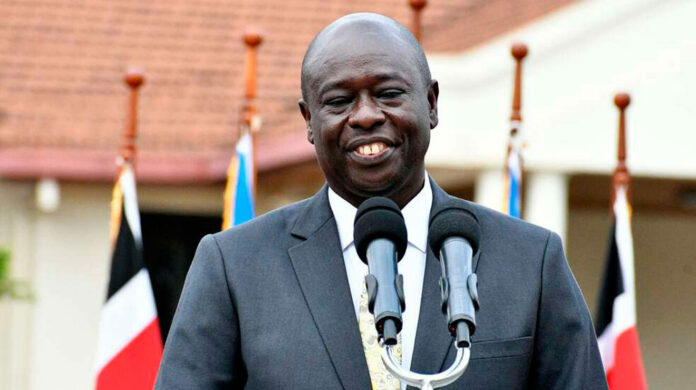The Assets and Recovery Authority (ARA) has refunded deputy president Rigathi Gachagua Sh. 200 million that had been forfeited to the State over corruption.
This is after Gachagua made a deal with the agency that was adopted by the Court of Appeal. The money was sent Gachagua’s three bank accounts. A fourth account at Rafiki Microfinance was in the name of Jenne Enterprises.
“The settlement is adopted and the matter is hereby marked as withdrawn,” a bench of three judges led by Justice Daniel Musinga said.
In July 2022, the High Court of Kenya had ruled that Gachagua had acquired the money that was frozen at Rafiki Microfinance through corruption.
Justice Esther Maina had ordered that Gachagua surrenders the money to the State. The money at Rafiki Micro Finance Bank was held in three accounts, with one holding Sh. 165 million, a second account held Sh. 35 million while the other held Sh. 773,228. The fourth account held Sh. 1,138,142.
ARA had told the High Court that Gachagua’s three personal accounts conducted a series of huge suspicious debit transactions amounting to Sh. 7.3 billion and a total credit of Sh. 12.5 billion between 2013 and 2020, which they believe are proceeds of crime.
Out of the huge bank transactions, the agency claimed the politician and his business associate could not explain how they acquired a total of Sh. 202 million.
Juliani’s Sh. 1 million social media rate card that is talk of town
The ARA said that Gachagua and Jenne Enterprises Limited were involved in a suspected complex scheme of money laundering.
The funds reportedly emanated from the Ministry of Lands (Kenya Informal Settlements Programme), State Department for Special Planning, Ministry of Health, Bungoma County government, Mathira Constituency Development Fund, Nyeri County government and the National Irrigation Board. Justice John Onyiego of the Anti-Corruption Division of the High Court stopped the MP and Jenne Enterprises from dealing with or transferring the funds.
In the judgment, the High Court determined that Gachagua had failed to explain how he acquired the wealth from government agencies.
Documents filed in court showed that within seven years, the MP received Sh. 5.8 billion, which included funds from companies or business entities providing services to ministries, state agencies and county governments.









